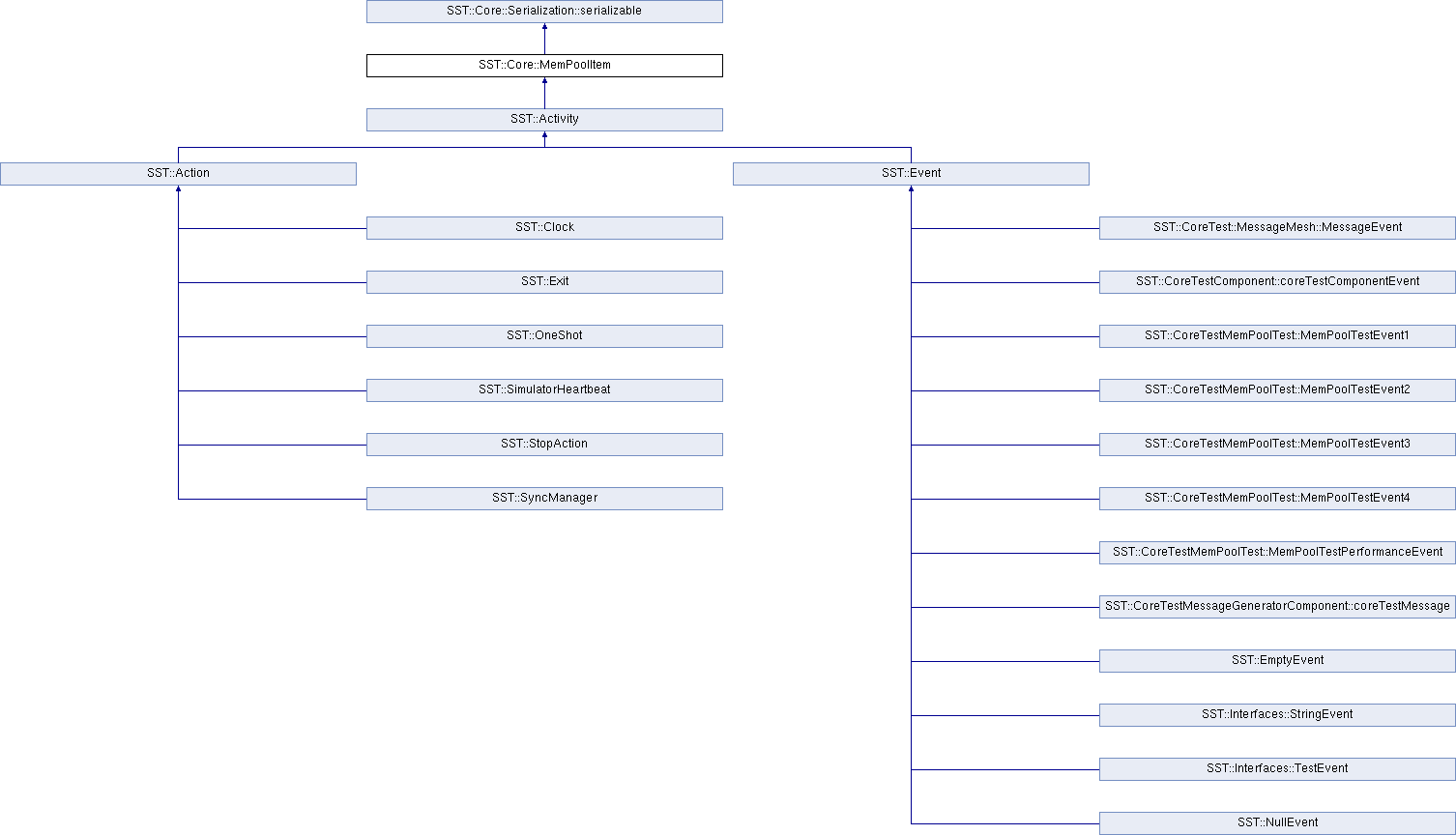
Public Member Functions | |
| void * | operator new (std::size_t size) noexcept |
| Allocates memory from a memory pool for a new Activity. | |
| void | operator delete (void *ptr) |
| Returns memory for this Activity to the appropriate memory pool. More... | |
| virtual std::string | toString () const |
| Get a string represenation of the entry. More... | |
| virtual void | print (const std::string &header, Output &out) const |
 Public Member Functions inherited from SST::Core::Serialization::serializable_base Public Member Functions inherited from SST::Core::Serialization::serializable_base | |
| virtual const char * | cls_name () const =0 |
| virtual void | serialize_order (serializer &ser)=0 |
| virtual uint32_t | cls_id () const =0 |
| virtual std::string | serialization_name () const =0 |
Additional Inherited Members | |
 Static Public Attributes inherited from SST::Core::Serialization::serializable Static Public Attributes inherited from SST::Core::Serialization::serializable | |
| static constexpr uint32_t | NullClsId = std::numeric_limits<uint32_t>::max() |
 Static Public Attributes inherited from SST::Core::Serialization::serializable_base Static Public Attributes inherited from SST::Core::Serialization::serializable_base | |
| static constexpr uint32_t | NullClsId = std::numeric_limits<uint32_t>::max() |
 Protected Types inherited from SST::Core::Serialization::serializable_base Protected Types inherited from SST::Core::Serialization::serializable_base | |
| enum | cxn_flag_t { ConstructorFlag } |
 Static Protected Member Functions inherited from SST::Core::Serialization::serializable_base Static Protected Member Functions inherited from SST::Core::Serialization::serializable_base | |
| static void | serializable_abort (uint32_t line, const char *file, const char *func, const char *obj) |
Member Function Documentation
◆ operator delete()
| void SST::Core::MemPoolItem::operator delete | ( | void * | ptr | ) |
Returns memory for this Activity to the appropriate memory pool.
Returns memory for this MemPoolItem to the appropriate memory pool.
◆ toString()
|
virtual |
Get a string represenation of the entry.
The default version will just use the name of the class, retrieved through the cls_name() function inherited from the serialzable class, which will return the name of the last class to call one of the serialization macros (ImplementSerializable(), ImplementVirtualSerializable(), or NotSerializable()). Subclasses can override this function if they want to add additional information.
Reimplemented in SST::Activity, SST::CoreTestMemPoolTest::MemPoolTestEvent4, SST::Exit, SST::Clock, SST::CoreTestMemPoolTest::MemPoolTestEvent3, SST::CoreTestMemPoolTest::MemPoolTestEvent2, and SST::CoreTestMemPoolTest::MemPoolTestEvent1.
The documentation for this class was generated from the following files:
- src/sst/core/mempool.h
- src/sst/core/mempool.cc
